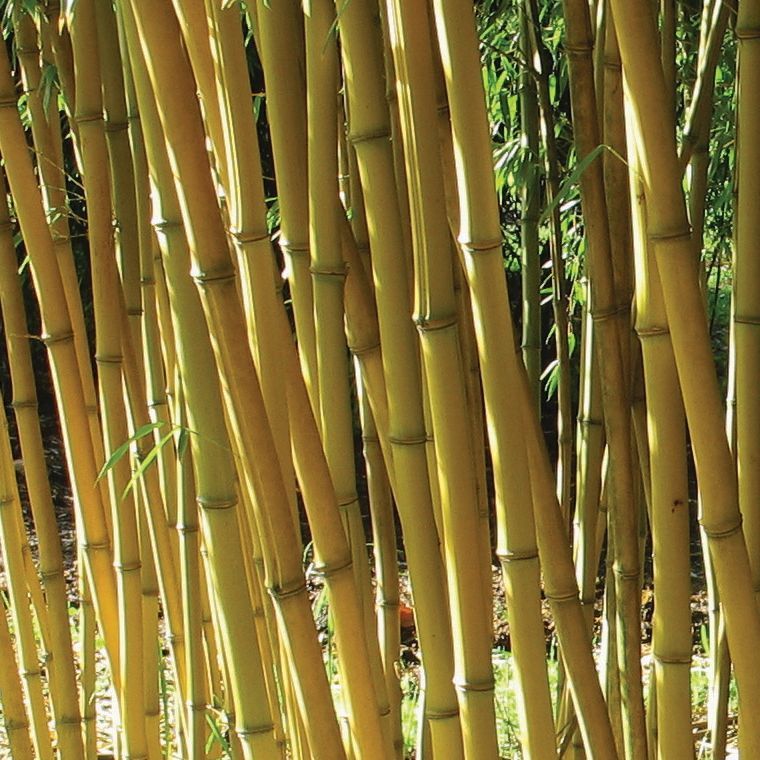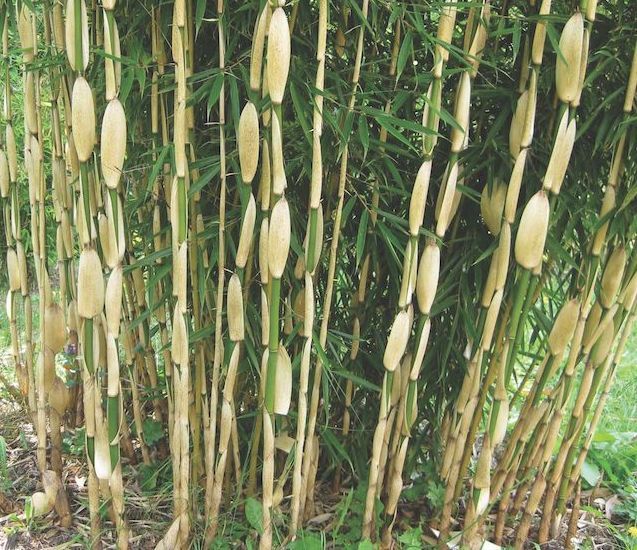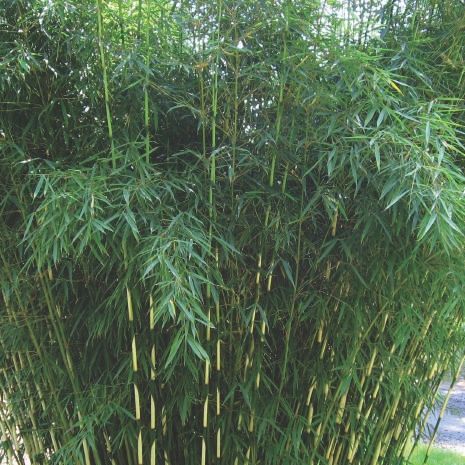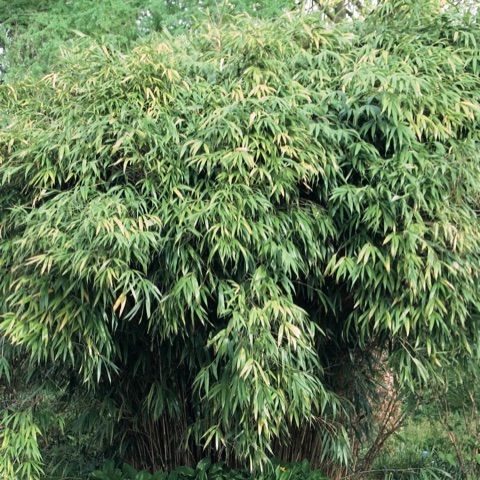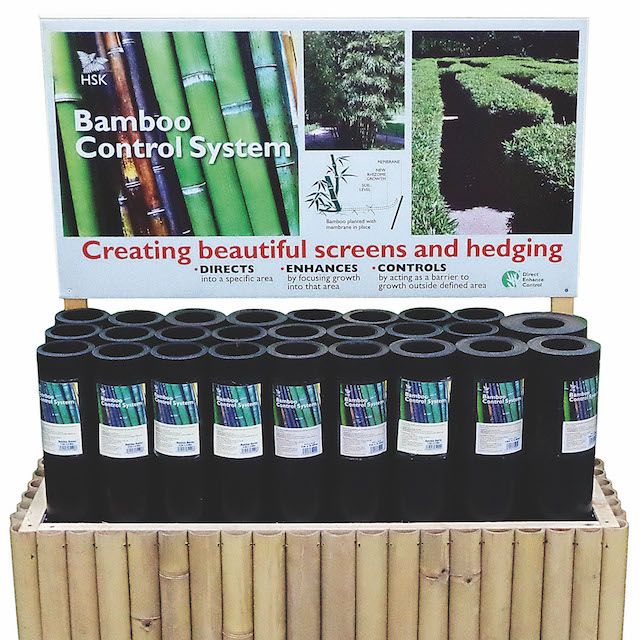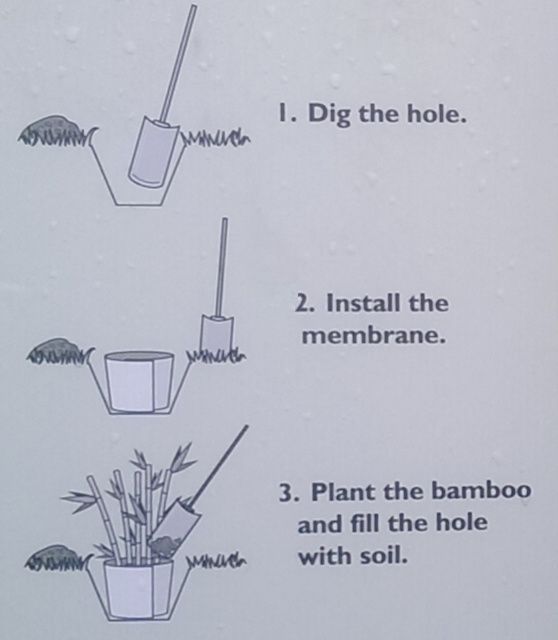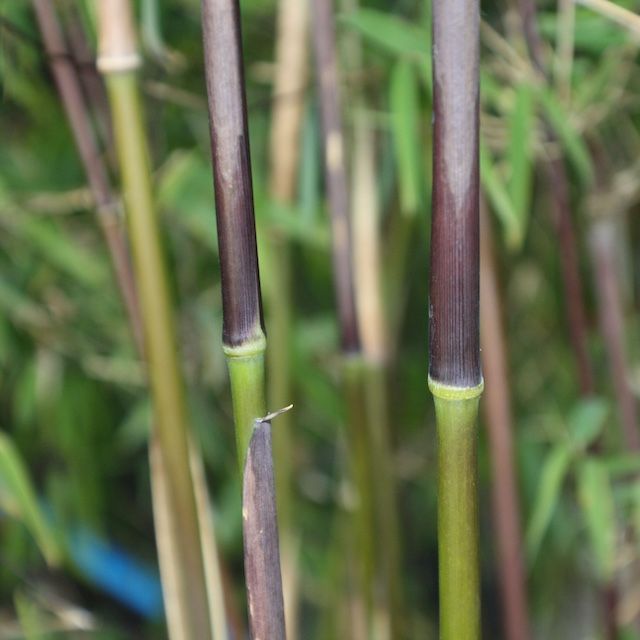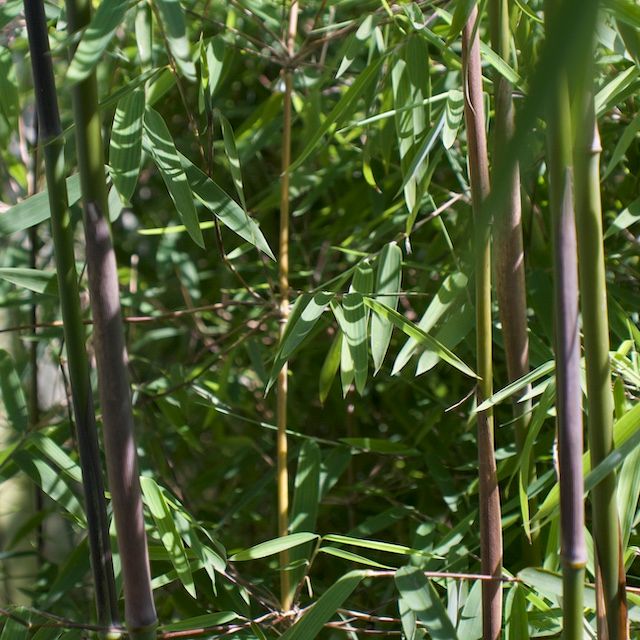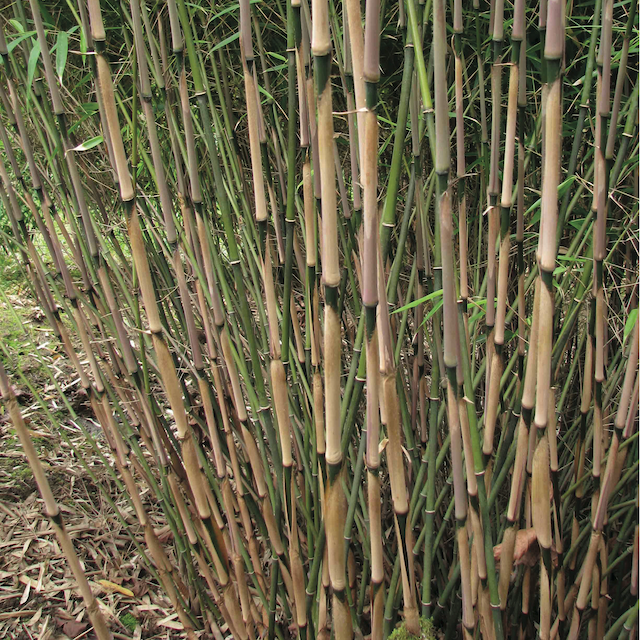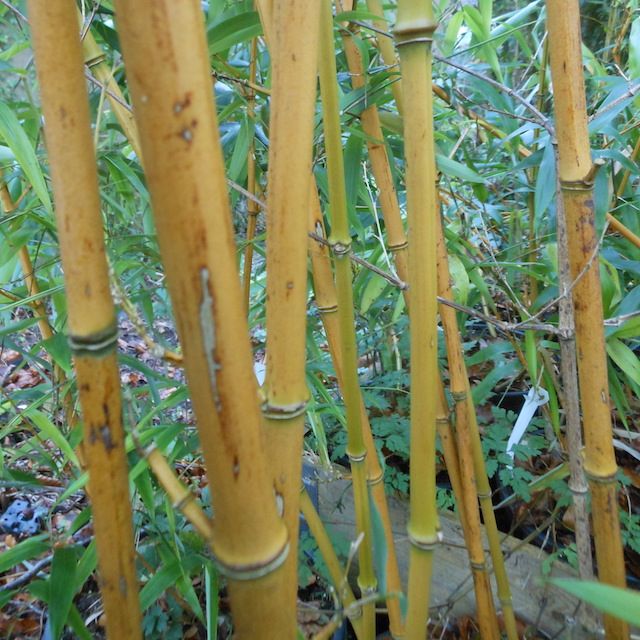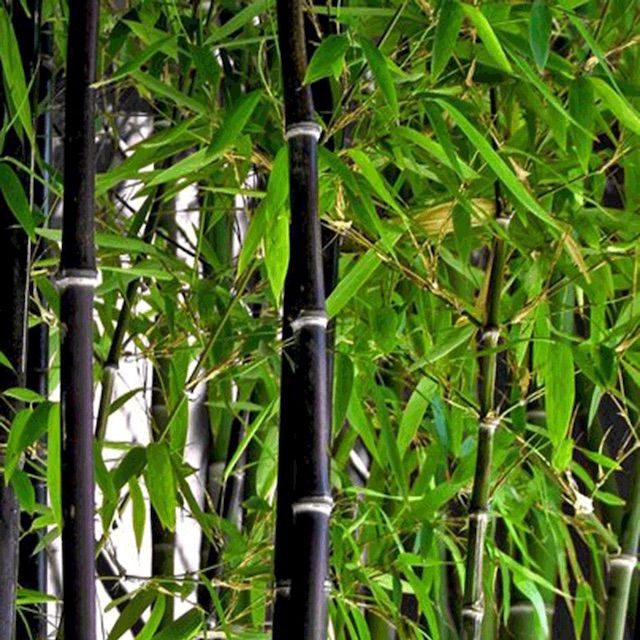About Bamboo
Bamboo is a tribe of flowering, perennial, evergreen plants in the grass family that’s making a bit of a comeback in British gardens. We stock a range of exciting bamboos of different heights to brighten up your garden design.
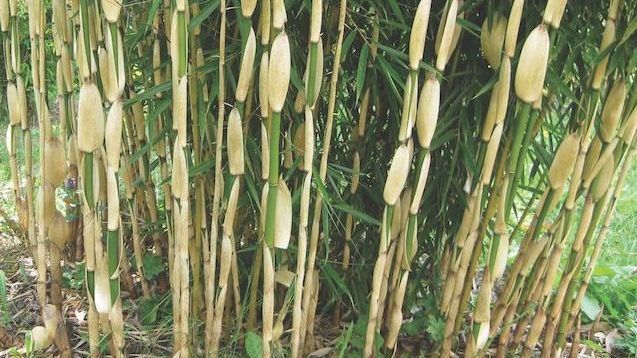
Growth Rate
Bamboo is a member of the grass family. The stems that you will receive in the pot will not grow any taller or thicker. As the root system develops, new shoots will appear in spring. These will be taller and thicker stems than the previous year's stems until the optimum height is reached as the years go by. So, the oldest stems are the smallest. Bamboo does not grow like a tree.
Season
Bamboos are good for the environment, absorbing more carbon dioxide than other plants. They are stronger than steel and have many uses, from scaffolding to socks. Many of the shoots are edible.
The 1500 or more species are divided into two groups of bamboo – running and clumping (although, of course there are running clumpers and clumping runners too!)
Bamboos should reach their mature height in 5-6 years.
Planting
Bamboos are ideal for screening, fencing, and a quick fix for a planting area. Their versatility is just one of the reasons they are now more popular than ever. As some are rampant spreaders, some will require plenty of space or to be contained, whichever suits your garden design.
To grow best, bamboos like moist soil in a sheltered, sunny position. Fargesias like some shade in the afternoons whereas Phyllostachys enjoy more sun. In general, more sun will bring out the best colour in the culms.
How Bamboo Grows
The growth rate of bamboo is dependent on local soil and climatic conditions, as well as species. A more typical growth rate for many commonly cultivated bamboos in temperate climates is in the range of 3-10cm per day during the growing period.
Primarily growing in regions of warmer climates, some of the largest timber bamboo can grow over 30m tall and be as large as 15-20 cm in diameter. Giant bamboos are the largest members of the grass family. The regions of the stem (culms) are always hollow, and they are regarded as one of the fastest-growing plants on Earth with reported growth rates of 1m in 24 hours!
However, the size range for mature bamboo is species dependent, with the smallest bamboos reaching only 10cm high at maturity.
How to Care for Your Bamboo
From carefully selecting where to site bamboos to advice on watering, get these top tips on how to care for your bamboo.
Bamboo in the Garden
Once you have chosen a suitable position for your bamboo, dig a large hole, approximately twice the width of the root mass. If it is a running bamboo, we would recommend using rhizome barrier to stop the roots from spreading. This is unnecessary for clumping bamboo.
Add plenty of organic matter then plant your bamboo 2-3cm lower than the surrounding soil level.
Water well. Keep your bamboo watered until it is properly established.
Bamboo in Pots
Bamboos also grow happily in large pots. Use a loam based potting compost such as John Innes no. 3 and feed throughout the growing season, as above. Ensure the compost does not dry out, even in winter. Plants in pots are more susceptible to frost, so may need protection over the winter. Pot on or divide every other year.
Through the Year
Each spring, when the shoots are starting to emerge, start to feed with a high nitrogen fertiliser such as Bertie’s Ballistic Bamboo Booster. Stop feeding by the end of August.
As the dead leaves fall to the ground, allow them to stay. They provide a good source of silica and other essential chemicals.
Remove any damaged canes in the spring. Leaving fewer culms will encourage them to increase in diameter, according to variety. To show off the culms at their best, remove the lower foliage and any branches.
Water during dry spells. Watering is particularly helpful in the spring when new shoots are growing rapidly. Lots of water once a week is far better than a daily sprinkling.
Flowering
Bamboos have an amazing pattern of synchronous flowering. Bamboo plants of the same species flower simultaneously across different countries and continents. Quite incredible that after many decades of not flowering, the blooms appear in the same year!
Bamboos do not always die after flowering, but if you notice flowers, cut out the culm. If the whole clump is flowering, allow the flowers to continue then cut down to the ground in spring and feed. The bamboo may shoot again.
Meet Our Bamboo Specialist
Paul is a 47-time RHS gold medal winner and avid bamboo enthusiast. He’s a published author and recognised expert when it comes to this versatile member of the grass family. For a masterclass on how to look after bamboos, there's no one better than Paul Whittaker.
Get in Touch for Advice
Please always feel free to call us for advice when it comes to your plants! We can provide some tailored tips about your situation on 01837 849367. We love hearing from our customers!
Join Fellow Bamboo Enthusiasts!
The Bamboo Society EBS Great Britain. Membership includes regular weekend visits and days out where members can exchange information and plant material, plus meet fellow bamboo lovers.
Visit Our Gardens
Bowdens is home to two nationally recognised gardens and a whole host of beautiful bamboos. We welcome you to take a tour to enjoy these beautiful plants alongside ferns, hostas, and more. We can even provide customisable tour options, perfect for bamboo lovers and gardening enthusiasts.
Don't Forget Bowdens' Gardening Talks!
Our gardening talks are available throughout the year! Whether you want to get the ins and outs of bamboo care or learn more about creating a show garden, we’ll be happy to visit your garden club or special event.


